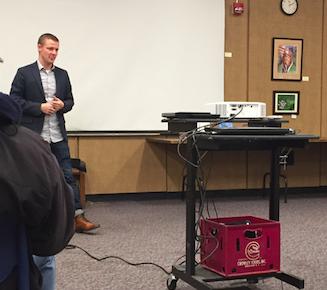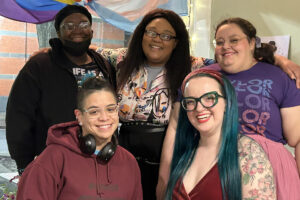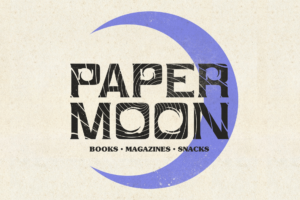By Jeffery Doherty
Two of the classic stories told about the human experience revolve around war: going to war and coming back. Ryan Smithson is the embodiment of both stories, and has aimed to express the nuances of service, from the positives to the negatives. He presented his memoir, Ghosts of War: The True Stories of a 19-Year-Old GI, and his newest book, 10 Klicks South of Whiskey, a historical fiction centered on the endeavor of a pickpocket turned GI fighting ISIS, and the horror of his superior’s fatal mistake.
He spoke to a crowd of veterans, on the day before Memorial Day, “I didn’t join, gung-ho Call of Duty type,” Smithson said. He had joined the Army Reserves as an engineer, so that he could be stateside with his love interest at the time who later became his wife. That was how he described his manner of joining the military, in the wake of September 11th, he wanted to do his part to protect his family and country. He was called into service and given orders to deploy, and after a shotgun wedding he flew to the Middle East to operate construction equipment, “They don’t make videogames out of guys like me,” Smithson said.
He did go on to talk about the uniqueness of his role in the military. Everyone needs to build things during war, from fortifications to bridges This fact meant that Smithson met with soldiers from a number of militaries from around the world, and from every branch of those militaries. Smithson also talked about the times where he and his battalion gave to the local people of Iraq even when he had been given explicit orders not to do so. “None of us were so idealistic that we thought it would make or break the war effort, but we thought, ‘If we’re here, we might as well try to help,’” Smithson said. One of the grimmer parts of his story came from the death of a fellow soldier in B Company, during one of the few attacks his convoy faced.
Some nights Smithson woke up in pure terror. One night he woke up and grabbed a knife, in fear that he was about to be attacked. One he was home he traded the knife for a drumstick just in case he began swinging at his wife sleeping next to him. “I was really ashamed of that,” Smithson said.
Smithson read out from both of his presented books and solicited questions from the audience. Many of the questions were about the work he has done since he left the Army, getting his Masters’ degree from SUNY Albany in English. He later read pieces from both Ghosts of Warand 10 Klicks South of Whiskey. The mood was somber, and the air full of catharsis, as one of the audience members spoke at length about their family member who was a serviceman as well. She told the audience of the man who served in the military and worked for the DEA until he passed, she then brought a quilt up to the podium, showing a field of service stars surrounding a shadow-soldier, and the star-spangled-banner.
Smithson does what he can to bridge the divide between war and home with his two books. That talk provided the kind of healing and understanding Smithson had talked about from the top of the hour that Memorial Day eve; war and service are just as much about the home front as they are about the frontline.





